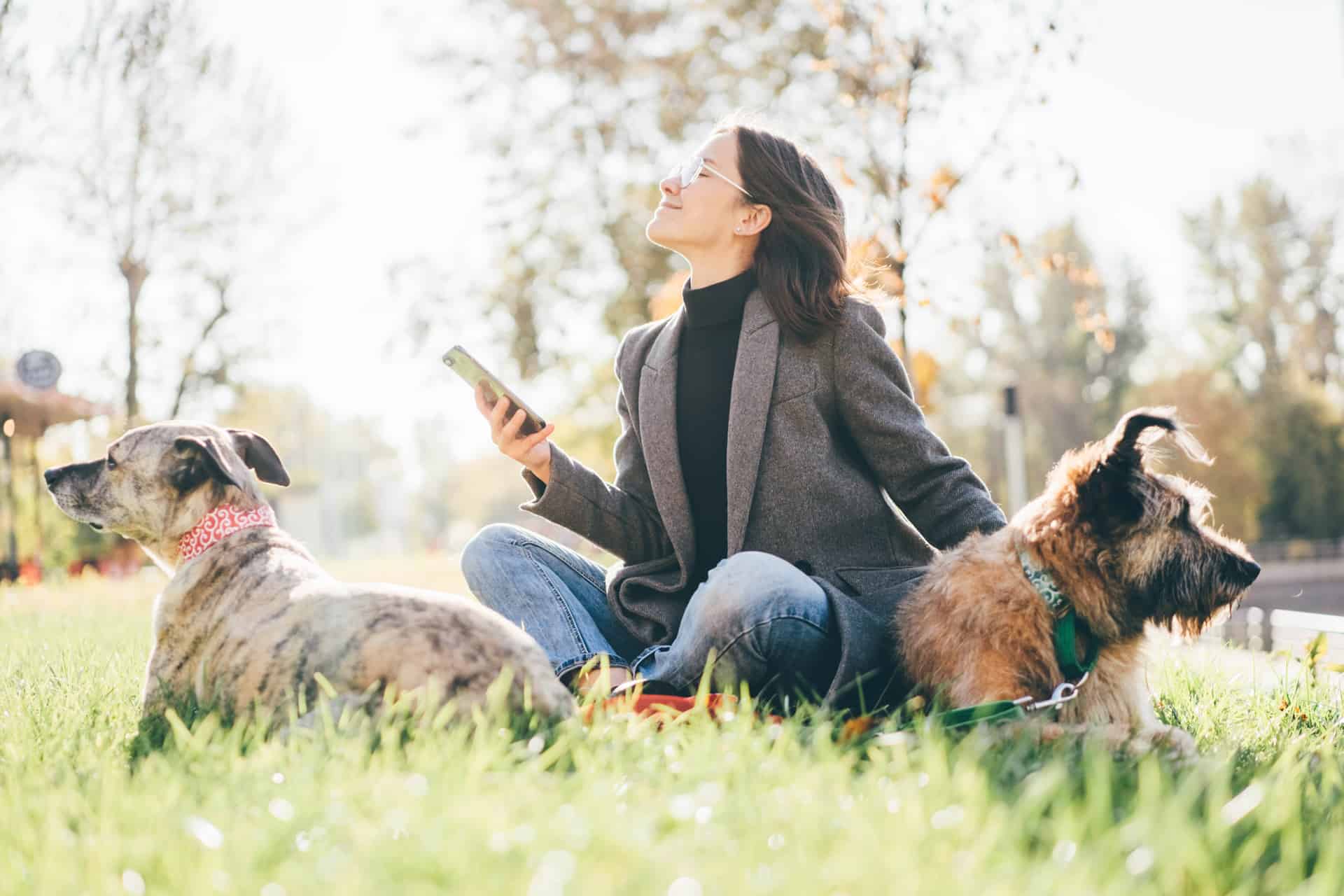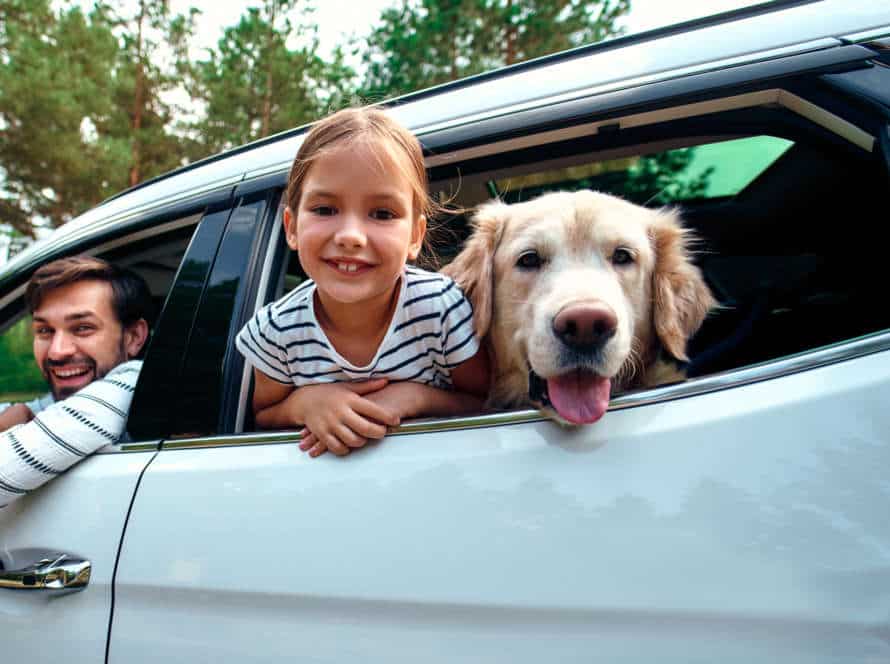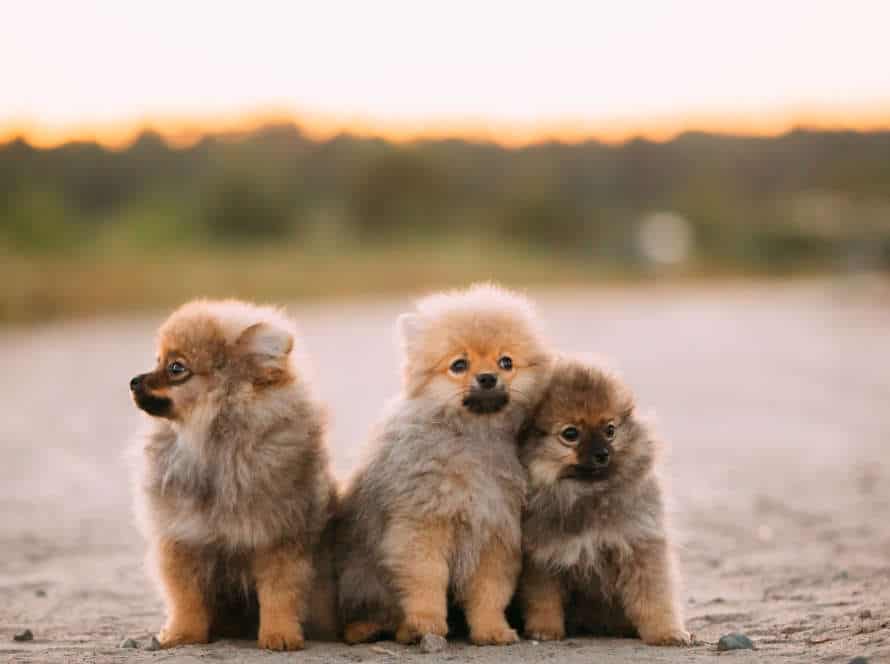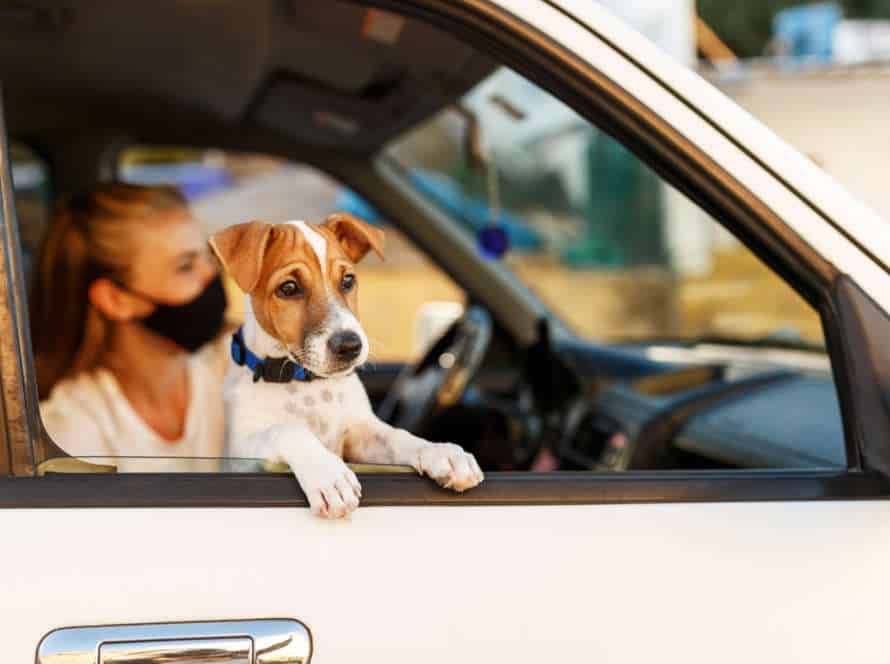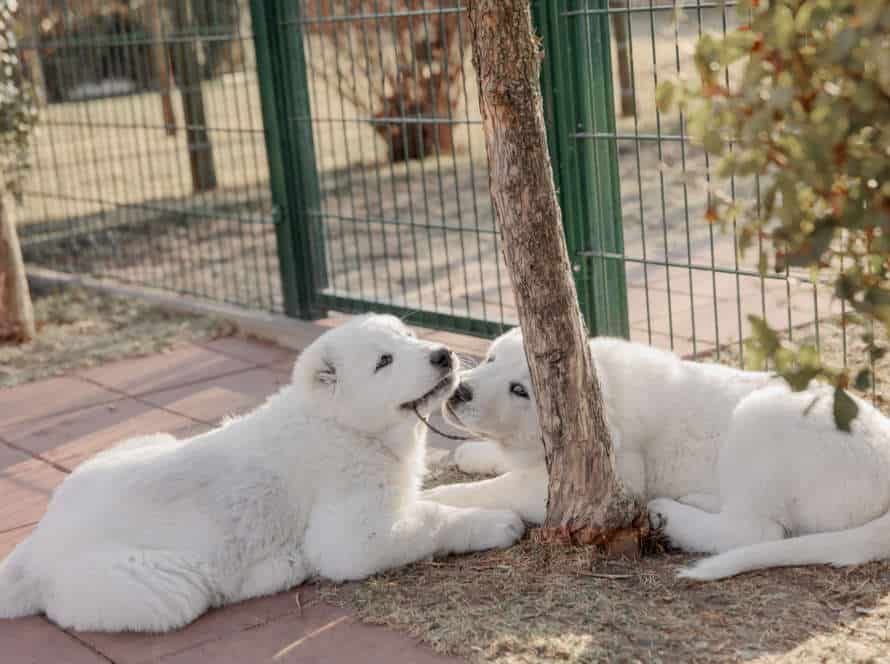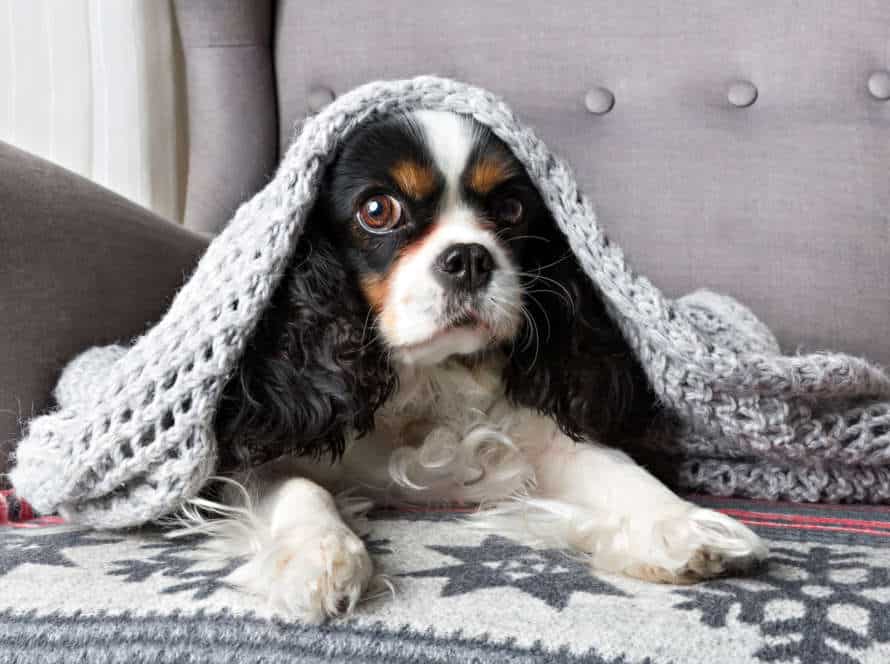Adult Dog Socialization: A Comprehensive Guide
Socializing your adult dog is essential for creating a well-rounded pooch! Here’s the scoop on how to do it:
- Start off slow. Take your pup to different environments, with people and animals, gradually.
- Use positive reinforcement when training. Reward good behaviour and ignore bad.
- Make a structured routine with obedience training, playtime, and socialization.
- Get help from an expert dog trainer or behaviourist. They can help you tailor a plan to your pup’s needs.
- Be patient, consistent, and kind. Over time, you’ll see positive changes in your dog’s behaviour and confidence.
Understanding the Importance of Socialization
Every pooch, no matter their age, can learn new tricks. However, adult dogs need more patience and attention than puppies. They may not have been socialized enough during their younger years. This can create behavioural issues that are tricky to tackle. Realizing the value of socialization is essential to successfully teaching an adult dog.
What is socialization?
Socialization is exposing your pup to all sorts of people, animals, and environments. It’s essential for their development and can shape their behavior in the long term. Doing it right can reduce the chances of anxiety, fear, or aggression. Here are some tips for adult dog socialization:
- Keep a good attitude and don’t push them too fast.
- Introduce them to new people and places with rewards and positive reinforcement.
- Watch their interactions with other dogs and slowly increase the time spent in social settings.
- It may be tricky, but with patience, perseverance, and rewards, you can help your dog become a happy, well-adjusted companion.
Pro tip: Seek expert help from a behaviorist or trainer for a tailored socialization plan.
Why is socialization important for adult dogs?
Socialization is essential for adult dogs. It aids them in forming positive reactions to people, other animals, and strange places. Here are some reasons why socialization is so important:
- Fear and stress minimized: Socialization helps dogs feel relaxed in various scenarios and reduces their inclination to show anxious or scared behaviour.
- Better behaviour: Dogs that are socialized have more appropriate behaviour and are less likely to take part in damaging activities such as chewing or barking too much.
- Higher self-esteem: Socialization assists dogs to become more sure of themselves and assertive in their demeanour, which increases their overall wellbeing.
- Improved relationships: Socialization also lets dogs communicate nicely with other dogs and people, resulting in better connections and less animosity towards others.
Pro tip: If you have an adult dog that hasn’t been socialized, take it slow and gradually introduce them to new situations, people, and other animals. Seek professional help if your dog demonstrates aggressive or fearful behaviour towards others.
What happens if a dog is not socialized?
If a dog is not socialized, they may show fearful or aggressive behavior towards unknown people, animals, and environments later. Socialization is vital, helping dogs learn to cope with different situations and interact in a positive way with their surroundings.
Importance of Socialization: Puppies are most open to socialization from 3-14 weeks old. This time period gives them the chance to be around various sounds, sights, smells, people, and other animals and become comfortable.
Socialization helps dogs to gain confidence, get important social skills and reduces the risk of issues like separation anxiety, aggression, and fear.
Adult dogs can also benefit from socialization by controlled exposure to new experiences and contact with unknown people, animals, and environments.
Pro tip: Reward-based training can help create positive associations with new experiences and people.
Socializing Your Adult Dog
Socializing your adult pup is a must! It can help make them more confident and better behaved. Plus, it can be a blast for their owners. But, you have to keep things in check, and have patience. Here’s all the steps you need to take to socialize your adult dog correctly. Enjoy!
Steps to socializing an adult dog
Socializing an adult dog? It can be tough, but it’s not impossible! Here’s what to do:
- Check your pup’s behavior around people & other animals.
- Make positive associations with treats & positive reinforcement.
- Start in a quiet environment & gradually let them get used to new people & places.
- Use obedience training to establish boundaries & good behavior.
- Expose them to a variety of people, animals & experiences. Keep them calm & relaxed.
- Be patient & persistent – don’t force them into uncomfortable situations.
Follow these steps & your adult dog will learn to interact with the world in a healthy way. Pro Tip: Consult a professional trainer to create a tailored socialization plan.
Finding opportunities to socialize your dog
Socializing your adult pup is key for their overall wellness and behavior! Here are some ways to give them socializing opportunities:
- Dog parks: A great place to introduce your pup to other pooches and owners in a controlled and secure setting.
- Group obedience classes: Joining one of these classes can help your pup learn how to act appropriately around other dogs and people.
- Playdates: Schedule playdates with other dog owners who have well-mannered pooches. This will help your pup to socialize and create positive relationships.
- Walks in the neighborhood: Taking your pup for a stroll in your area can expose them to different sights, sounds, and people; helping them build confidence and social skills.
- Remember: Not all dogs are social butterflies. If you’re unsure how to proceed with socializing your pup, always consult a professional trainer or vet.
Socializing your dog with other dogs
Socializing your adult pup with other dogs is a must for their growth and health. It can help them feel more confident, reduce fear and aggression, and give them the chance to get exercise and have fun. Here’s how to do it:
- Start slow: Start with short, controlled meetings with dogs you know are pleasant and well-behaved.
- Monitor body language: Watch how your dog interacts with other dogs and look out for signs of fear or aggression. If they seem uncomfortable, take a break and try again later.
- Reward good behavior: Congratulate and reward your pup when they have calm and friendly meetings with other dogs.
- Use a leash and neutral place: Keep your pup on a leash, and introduce them to other dogs in an open, neutral area.
- Consider pro help: If your pup has serious behavior issues, get the help of a professional dog trainer or a behaviorist.
Pro tip: Socializing your adult dog may take patience and time, but it’s worth it for their overall health and contentment.
How to introduce your dog to new dogs
Introducing your pup to new furry friends can be tricky. It’s easier with early socialization. Here are some tips for adult dogs:
- Start small; just one dog at a time in a controlled setting.
- Use treats or praising to reward good behavior.
- Keep initial meetings short, and slowly add time.
- Keep an eye on both dogs and intervene if needed.
- Give them breaks when they need it.
- Gradually increase complexity; different sizes, breeds, & environments.
- Socialization is an ongoing process – patience & effort needed.
- Pro tip: enroll in a doggy training class. Controlled environment.
Supervising dog interactions
Supervising doggy interactions is important for socializing an adult pup and making sure they get along with other dogs. Here are some tips to help:
- Put a leash on your dog during introductions to avoid any fights.
- Look for signs of aggression or stress in either dog, like growling, barking, or hair standing up.
- Notice the body language of both dogs – tails, ears, and if they’re tense.
- If either dog looks aggressive, uncomfortable, or stressed, intervene immediately.
- Give treats and praise when they play nicely, to encourage them to keep it up!
Socializing your dog with people
Socializing your pup with people is a must for their training. Especially for adult pooches, who may not have had the same level of socialization as puppies. Here are some tips to help:
- Begin in a peaceful setting where your dog feels secure.
- Introduce your dog to people one by one, starting with someone they already know, to build trust.
- Offer treats or praise when they show good behavior.
- Gradually increase the number of people and complicate the environment.
- Monitor your pup’s body language for signs of stress or unease.
By following these tips, you can help your adult dog become more comfortable with people and reduce the chances of behavioral issues related to socialization.
Introducing your dog to new people
Introducing your dog to new people is an important part of socializing your adult pup. This helps to avoid anxiety, aggression, and other behavioural issues that may arise when your pet isn’t used to different people and different scenarios.
Here are some tricks to make the introduction process simple and stress-free:
- Start with familiar people and places before introducing your pup to strangers.
- Use positive reinforcement like treats, praise, and playtime to help your pup pair new people with good experiences.
- Give your dog enough time to sniff and explore new people in a safe, calm atmosphere.
- Monitor your pup’s body language and behaviour during the introduction process, and remove them if they become agitated or anxious.
Remember, each dog is special and the introduction process may take longer for some dogs than others. With patience, consistency, and positive reinforcement, you can help your adult pup build strong socialization skills that will last a lifetime.
Encouraging appropriate behavior with people
Encouraging suitable conduct with folks is an essential part of socializing your adult pup. This’ll help ensure a peaceful relationship between pup and people in their life. Here are some effective techniques:
- Positive reinforcement – reward desirable behaviors (like sitting calmly when meeting new people) with treats, praise and affection.
- Consistency – set specific rules and boundaries for pup’s behavior with people, and enforce them consistently.
- Exposure – introduce pup to different people – men, women, children, different races and ages.
- Patience – recognize that socialization’s gradual and may take time for pup to feel comfy around new people.
With these strategies, you can help your adult dog become a confident and well-mannered member of your social circle.
Overcoming Socialization Challenges
Adopting an adult pooch? May come with socialization difficulties. These dogs may have had past experiences that make it harder to get used to new people, animals, and places. Here, we explore the strategies for helping them adjust to their new home. Making them feel comfy and sure of themselves.
Fear-based aggression in adult dogs
Fear-based aggression in adult dogs is a common issue for pet owners. It can be from improper socialization or a bad experience. Preventing it is essential. Here are a few tips:
- Positive reinforcement training to build trust.
- Desensitize your dog to frightening things, slowly.
- Counter condition negative associations with positive ones.
- Expose your dog to new people, places and situations while rewarding good behavior.
- No punishment or force-training – it could lead to fear and aggression.
- Patience and consistency are important.
Pro tip: Talk to a professional dog trainer or behaviorist for personalised help.
Separation anxiety in adult dogs
Separation anxiety in adult dogs is an issue that needs a thorough plan to be overcome. This includes teaching your dog to be relaxed when left alone, so bad behaviors like chewing, howling, or barking don’t occur. Here are some tips to help adult dogs with separation anxiety:
- Start with brief departures: Start leaving your dog alone for a few minutes and make the time longer when they are used to it.
- Make a secure spot: Pick a place in the home where your dog feels safe. Put their bed, toys, treats, or something with your smell in it.
- Have positive reinforcement: Reward your dog when they are good when left alone. You can use treats, toys, or verbal praise.
- Get professional help: If the separation anxiety your dog has is bad and long-lasting, get help from a vet or dog behaviorist.
By following these tips and being patient and consistent, you can help adult dogs manage separation anxiety and have a happier life.
Aggression towards other dogs or people
Aggression to others can be tricky for adult dogs. The solution is socializing them! Here are some steps to work on it:
- Figure out what triggers the aggression.
- Make the triggers more familiar, in a controlled environment.
- Reward good behavior and correct unwanted behavior with positive reinforcement.
- Get a professional trainer to help create a custom plan for your pup.
Remember, socializing is an ongoing process that requires patience, consistency and dedication. With the right attitude and help, adult dogs can develop positive relationships with other dogs and people.
Addressing the challenges of socializing adopted adult dogs
Adopting an adult dog may present some difficulties when trying to socialize them. They might already have behaviours or anxieties that make the process difficult. Here are a few tips to help.
- Begin with basic training. This will create a bond of trust and communication.
- Socialize your pup gradually, beginning in calmer settings. Then, introduce them slowly to people or other pets.
- Use positive reinforcement to motivate desirable behaviour.
- For more severe issues, try professional training or therapy.
- Be patient and consistent. This is key to successful socialization.
In summary, adult dog’s socialization can be a struggle, but with the correct methods and consistency, it can be achieved, leading to a happier, more adjusted pet.
Continuing Socialization for a Happy, Healthy Dog
Socializing your pup is vital for having a content and robust dog. Especially for grown-up dogs who were sheltered or didn’t get any socialization when they were young. Keeping up socialization for an adult canine’s life is a must for increasing their self-assurance and assisting them to be at ease in tense social scenarios.
This comprehensive guide will give hints on how to keep socializing your grown-up dog.
Maintaining ongoing socialization
Maintaining socialization is key for a happy, healthy, and well-behaved pup, especially as it ages. Socializing your dog early is important, but it’s also vital to continue doing so throughout its adult life. Here are some tips to keep socializing:
- Go on walks with your dog and allow them to meet other animals.
- Visit dog parks and let them play with other dogs.
- Sign up your dog for training classes that offer socialization.
- Introduce your pup to new people, such as kids and those of different ethnicities.
- If your dog shows fear or aggression, get professional help from an expert.
Pro Tip: Socializing regularly helps your pup build confidence, decreases anxiety and hostility, and strengthens your bond.
The benefits of continued socialization
Socializing your pup offers multiple advantages, including improved conduct, higher social confidence, and better overall health. Benefits of ongoing socialization for your doggo include:
- Diminished Anxiety and Fear – A pup that is socialized from a young age is less likely to develop nervousness or fright towards unfamiliar people, pets, or scenarios.
- Improved Behavior – Constant socialization can help refine your pup’s behavior, making them less prone to hostility or destructive habits.
- Boosted Social Confidence – Dogs exposed to varied social settings and people gain greater social assurance.
- Superior Overall Health – Regularly socializing your pup can lead to improved physical health by raising their activity level and reducing stress.
Do note, socialization for dogs is not limited to puppyhood. Adult dogs also benefit from continued socialization to keep them happy, healthy, and emotionally balanced.
How to incorporate socialization into your adult dog’s daily routine
Socialization is key for an adult pup to be happy and healthy. Though dogs are social animals, many people don’t appreciate the importance of socializing past the pup stage. Here are some ideas:
- Take your pooch to dog-friendly places like parks, beaches, etc. so they can interact with other dogs and people.
- Enroll your four-legged friend in obedience classes or agility training.
- Arrange playdates with other doggos in your area or with pals who have pooches.
- Go for frequent walks and let them sniff, explore and meet new people and fur-buddies.
- It is essential to watch their behavior during socialization. If they seem anxious or aggressive, take them away and try again later.
Pro Tip: Incorporating socialization into your adult pup’s routine can help avoid behavioral issues and keep them content and healthy.
Frequently Asked Questions
Q: Why is adult dog socialization important?
A: Adult dog socialization is important because it helps dogs learn how to interact appropriately with other dogs, people, and new environments. This can reduce anxiety and aggression, and make your dog a more well-adjusted member of your family.
Q: Can you socialize an adult dog that hasn’t been socialized before?
A: Yes, it is possible to socialize an adult dog that hasn’t been socialized before, but it may take more time and effort than socializing a puppy. It’s important to start slowly and gradually expose your dog to new situations, people, and other dogs.
Q: Can older dogs still enjoy socializing and making new friends?
A: Yes, older dogs can still enjoy socializing and making new friends. However, it’s important to keep in mind that some older dogs may prefer a more relaxed lifestyle and avoid overly boisterous or energetic dogs.
Q: What are some ways to socialize an adult dog?
A: Some ways to socialize an adult dog include attending training classes, going on walks in different environments, visiting dog parks, and setting up playdates with other dogs.
Q: How can I tell if my adult dog is uncomfortable or anxious in a social situation?
A: Signs that your adult dog may be uncomfortable or anxious in a social situation include hiding, cowering, growling, barking excessively, or showing signs of aggression toward other dogs or people.
Q: How can I help my adult dog feel more comfortable in social situations?
A: To help your adult dog feel more comfortable in social situations, start by exposing them to new situations in a controlled and positive way. Use treats and praise to reward good behavior, and monitor your dog’s body language to make sure they’re not feeling overwhelmed or anxious.

